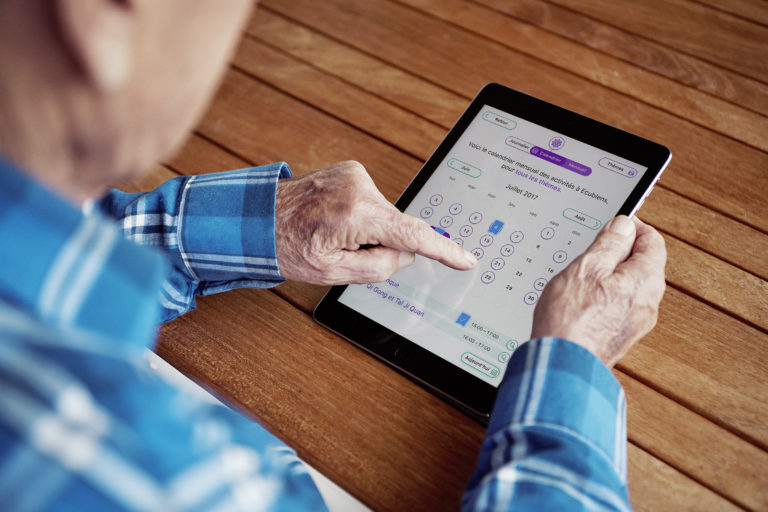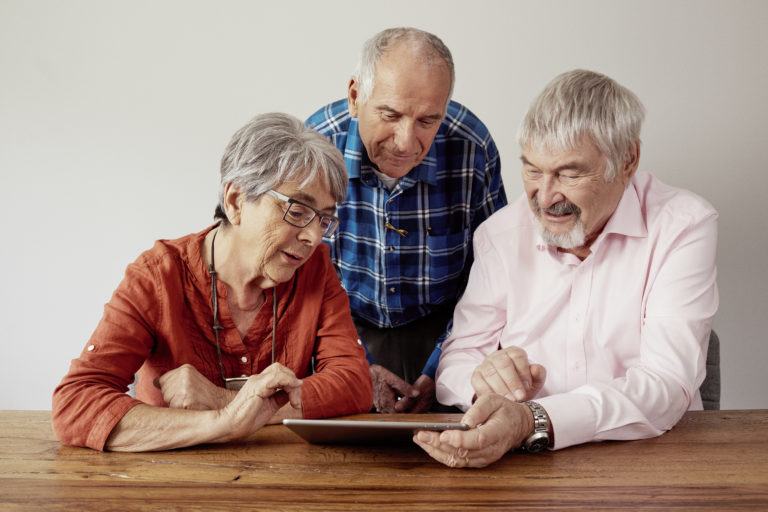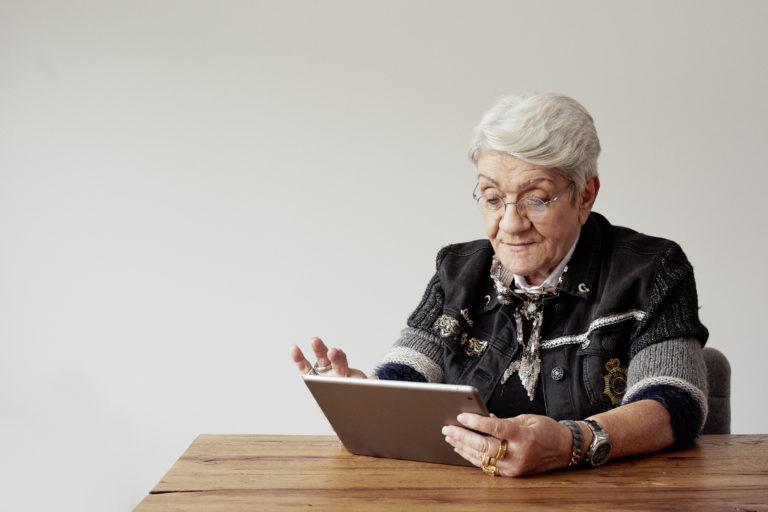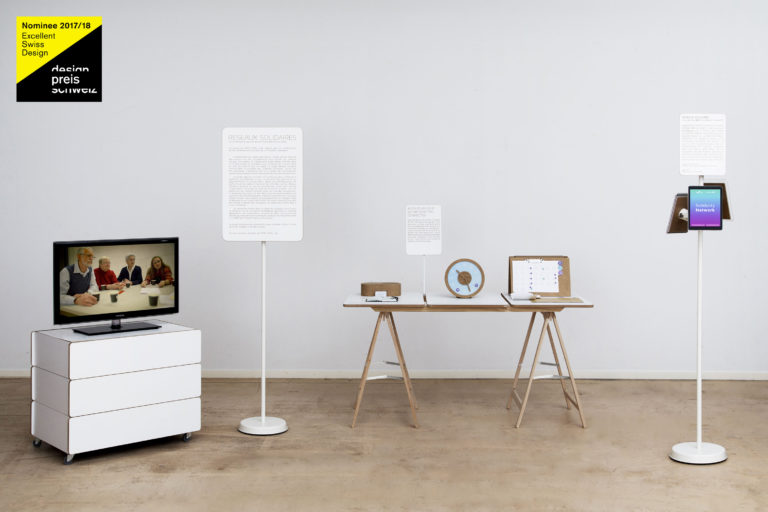Solidarity Network
Aiming to reinforce social interaction among older people through digital technologies, Solidarity Network – Réseaux Solidaires – also sets new principles for inclusive design. In doing so, the EPFL+ECAL Lab found a way to give digital media a social purpose for the senior community.
Studies show the desire of older people to maintain an active social life. They also indicate the major impact of loneliness on health. Based on this acknowledgment, Solidarity Network explores how digital technology can improve social connections in real life and gives guidelines to design user-friendly interfaces for older people. An inclusive approach that benefits all generations.
During the project, we worked with older people in the UK and Switzerland to co-create a new design approach. Contrary to common opinion, our observations, interviews and co-creation work with more than 80 older people indicates that they are very much capable of getting to grips with new technology. Barriers to adoption are more related to trust, belief and meaning of the services.
Enhancing real life interactions, not virtual friendships, is key for technology to become relevant for older people.
The result is the Solidarity Network website service which gives key information about upcoming events and shows reviews, photos and accounts of past events within the own community of the user.
Transparent and efficient, it preserves information only for people who belong to these existing communities, and limits its function to what helps real events and gatherings to happen. It uses the qualities of technology and the internet that are most relevant to older people, working alongside existing systems to provide more up-to-date, flexible and comprehensive information. Content management is based on social interaction and organisation observed in these communities, rather than on coding optimisation.
The service has been online since 2018 for an experimental phase within four communities in Switzerland. Feedback and community evolution show the impact of Solidarity Network. Based on these results, the project should be extended to a larger number of communities including new options enabling interactions between different communities.
Direction
Project Management & Design Lead
Research Assistant
Lead Community Agent
Sylvie Guillaume-Boeckle (Pro Senectute Vaud)
Design & Research
Mathieu Daudelin, Emily Groves, Andreas Koller, Dr Andreas Sonderegger
Engineering
Antistatique Sàrl, Olivier Evalet, Delphine Ribes, David Roulin
Product Design & Scenography
UX Psychology
Dr Andreas Sonderegger with assistance of Oguz Sona and Léonore Guiet-Pasquier
Photography Credits
© EPFL+ECAL Lab / Anoush Abrar





